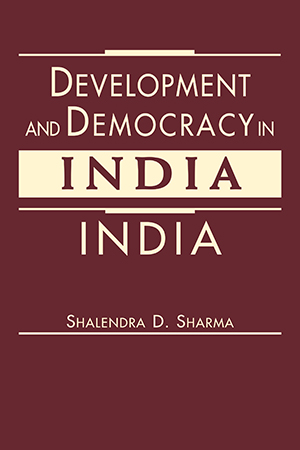
- 1999/281 pages
Development and Democracy in India
Hardcover: $55.00
ISBN: 978-1-55587-810-8
This broad, historically grounded study examines the relationship between democratic governance and economic development in postindependence India (1947-1998). Sharma addresses the fundamental paradox of India’s political economy: why have five decades of democratically guided strategies failed to reconcile economic growth with redistribution or to mitigate the condition of extreme poverty in which some 350-400 million Indians—more than 40 percent of the population—live?
Drawing on an exhaustive empirical review of India’s rural development and reform policies over the past fifty years, Sharma demonstrates that the wide discrepancies between development goals and actual outcomes have been fundamentally shaped by the manner in which the various constituents of the democratic polity coexist with and are inextricably embedded in rural society. His study challenges traditional concepts of democracy and development, as well as the relationship between the two.
No rights in India.







